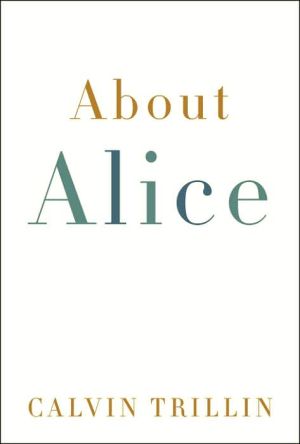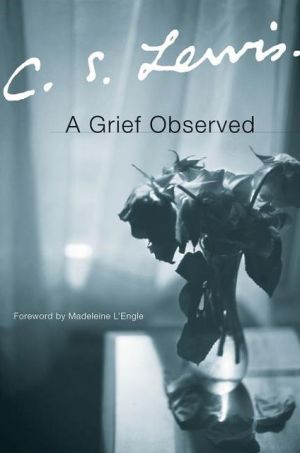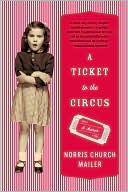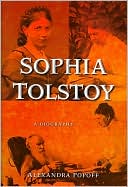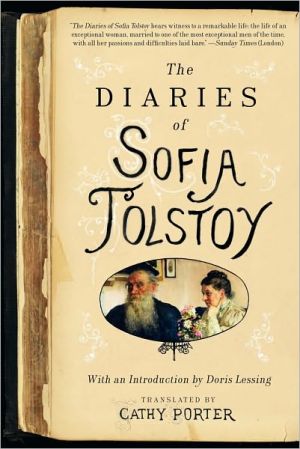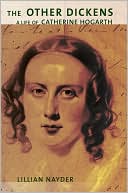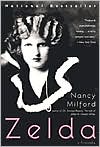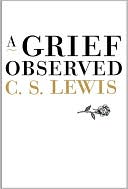About Alice
In Calvin Trillin’s antic tales of family life, she was portrayed as the wife who had “a weird predilection for limiting our family to three meals a day” and the mother who thought that if you didn’t go to every performance of your child’s school play, “the county would come and take the child.” Now, five years after her death, her husband offers this loving portrait of Alice Trillin off the page–his loving portrait of Alice Trillin off the page–an educator who was equally at home teaching at...
Search in google:
In Calvin Trillin’s antic tales of family life, she was portrayed as the wife who had “a weird predilection for limiting our family to three meals a day” and the mother who thought that if you didn’t go to every performance of your child’s school play, “the county would come and take the child.” Now, five years after her death, her husband offers this loving portrait of Alice Trillin off the page–an educator who was equally at home teaching at a university or a drug treatment center, a gifted writer, a stunningly beautiful and thoroughly engaged woman who, in the words of a friend, “managed to navigate the tricky waters between living a life you could be proud of and still delighting in the many things there are to take pleasure in.”Though it deals with devastating loss, About Alice is also a love story, chronicling a romance that began at a Manhattan party when Calvin Trillin desperately tried to impress a young woman who “seemed to glow.”“You have never again been as funny as you were that night,” Alice would say, twenty or thirty years later.“You mean I peaked in December of 1963?”“I’m afraid so.”But he never quit trying to impress her. In his writing, she was sometimes his subject and always his muse. The dedication of the first book he published after her death read, “I wrote this for Alice. Actually, I wrote everything for Alice.”In that spirit, Calvin Trillin has, with About Alice, created a gift to the wife he adored and to his readers. The New York Times - Peter Stevenson This book can be seen as a worthy companion piece to other powerful accounts of spousal grief published in the last decade: Joan Didion s tale of John Gregory Dunne s fatal heart attack, John Bayley s memoir of Iris Murdoch s decline from Alzheimer s and Donald Hall s narration of Jane Kenyon s death from leukemia.
Chapter 1\ Now that it’s fashionable to reveal intimate details of married life, I can state publicly that my wife, Alice, has a weird predilection for limiting our family to three meals a day.\ —Alice, Let’s Eat\ There was one condolence letter that made me laugh. Naturally, a lot of them made me cry. Some of those, oddly enough, were from people who had never met Alice. They had become familiar with her as a character in books and magazine pieces I’d written—light books and magazine pieces about traveling or eating or family life. Virtually all those letters began in the same way, with a phrase like “Even though I never really knew Alice. . . .” I was certain of what Alice’s response would have been. “They’re right about that,” she would have said. “They never knew me.”\ I once wrote that tales about writers’ families tend to have a relation to real life that can be expressed in terms of standard network-television fare, on a spectrum that goes from sitcoms to Lifetime movies, and that mine were sitcoms. Now that I think of it, maybe they were more like the Saturday-morning cartoons. Alice played the role of the mom—the voice of reason, the sensible person who kept everything on an even keel despite the antics of her marginally goofy husband. Years ago, at a conference of English teachers where we were both speakers, the professor who did the introductions said something like “Alice and Bud are like Burns and Allen, except she’s George and he’s Gracie.” Yes, of course, the role she played in my stories was based on the role she played in our family—our daughters and I sometimes called her T.M., which stood for The Mother—but she didn’t play it in the broad strokes of a sitcom mom. Also, she was never completely comfortable as the person who takes responsibility for keeping things on an even keel; that person inevitably misses out on some of the fun. (“I feel the need to break out of the role of straight person,” she said in a Nation review of Alice, Let’s Eat that cautioned readers against abandoning long-planned European vacations in order to scour the country for “the perfect roast polecat haunch.”) The sitcom presentation sometimes made her sound stern as well as wise, and she was anything but stern. She had something close to a child’s sense of wonderment. She was the only adult I ever knew who might respond to encountering a deer on a forest path by saying, “Wowsers!”\ Once, during a question-and-answer period that followed a speech I had given at the Herbst Theatre, in San Francisco, someone asked how Alice felt about the way she was portrayed in my books and articles. I said that she thought the portrayal made her sound like what she called “a dietitian in sensible shoes.” Then the same questioner asked if Alice was in the audience, and, when I said she was, he asked if she’d mind standing up. Alice stood. As usual, she looked smashing. She didn’t say anything. She just leaned over and took off one of her shoes—shoes that looked like they cost about the amount of money required in some places to tide a family of four over for a year or two—and, smiling, waved it in the air. She wasn’t a dietitian in sensible shoes, and she would have been right in saying that the people whose exposure to her had been through my stories didn’t know her. Still, in the weeks after she died I was touched by their letters. They may not have known her, but they knew how I felt about her. It surprised me that they had managed to divine that from reading stories that were essentially sitcoms. Even after I’d taken in most episodes of The Honeymooners, after all, it had never occurred to me to ponder the feelings Ralph Kramden must have had for Alice Kramden. Yet I got a lot of letters like the one from a young woman in New York who wrote that she sometimes looked at her boyfriend and thought, “But will he love me like Calvin loves Alice?”\ The letter that made me laugh was from Roger Wilkins. By the time of Alice’s death, Roger occupied a chair of history and American culture at George Mason University, but in the seventies he had been on the editorial board of The New York Times. In that period, I’d sometimes join the regular lunches he had with the late Richard Harris—a remarkable investigative reporter for The New Yorker who had the aggressively unsentimental worldview often found among people in his line of work. Alice and Roger became acquainted when she accompanied me to a conference I was covering in New Orleans. In off hours, when we’d gather around the hotel swimming pool, she and Roger sometimes had long, serious conversations. It wasn’t unusual for me to find Alice having long, serious conversations with people I’d been bantering with for years. She got engaged with people’s lives. If she said to a friend’s son or daughter, “How’s school?” she wasn’t just being polite; she wanted details, and she wasn’t shy about offering advice. If people we were visiting mentioned that they’d been thinking about renovating their house, Alice was right on the case, room by room. In such architectural conversations, she could get bossy, and sometimes I felt obliged to warn our hosts that one of her characteristic gestures—the gesture she used when she was saying something like “You have to open all of this up”—was remarkably similar to the gesture you’d use to toss money into the wind.\ She wasn’t among those whose response to tragedy or loss was limited to offering the conventional expressions of sympathy before moving on with their own lives. In 1988, an old friend phoned us to say that his grown daughter, a young woman we’d known since she was a child, had been raped by an intruder. This was a dozen years after Alice had been operated on for lung cancer, and among the things that she wrote to our friend’s daughter was that having lung cancer and being raped were comparable only in that both were what she called “realizations of our worst nightmares.” She said that there was some relief at surviving what you might have thought was not survivable. “No one would ever choose to have cancer or to be raped,” she wrote. “But you don’t get to choose, and it is possible at least to understand what Ernest Becker meant when he said something like ‘To live fully is to live with an awareness of the rumble of terror that underlies everything,’ or to begin to understand the line in ‘King Lear’—‘Ripeness is all.’ You might have chosen to become ripe less dramatically or dangerously, but you can still savor ripeness.” Alice had a large envelope in which she kept copies of letters like that—along with copies of some letters she had sent the girls and copies of poems we had written for her on birthdays and documents like the announcement of a prize for community service that Abigail, our older daughter, had been awarded at Yale and an astonishing letter of recommendation that a professor had provided for Sarah, our younger daughter, when she applied for her first job after getting her M.S.W. On the envelope was written “Important Stuff.”\ In his condolence letter, Roger talked partly about that engaged quality in Alice, but he also got around to her appearance. “She was nice and she was concerned and she was smart and when she talked to you, she was thinking about you, and, also, she was so very pretty,” he wrote in September of 2001, a few days after Alice died. “I always thought of you as a wonderful guy, but still I couldn’t figure out how you managed to get Alice. Harris once told me it was just dumb luck.” When I read that, I burst out laughing. Harris had nailed it again.
\ From Barnes & NobleEpitomizing what is best in personal narrative, noted humorist Calvin Trillin expands his acclaimed New Yorker essay into an eloquent, affecting eulogy for his adored wife, Alice -- the lovable foil in his hilarious ruminations on family life. Although she played literary "straight man" to her husband's more free-spirited persona, the real-life Alice was remarkably multifaceted. Beautiful, intelligent, and accomplished, she was an educator, a writer, and a cancer survivor who, in an ironic twist of fate, succumbed in 2001 to complications from radiation treatments. That she was also the abiding love of Trillin's life shines forth incandescently from every page of this graceful, understated tribute.\ \ \ \ \ Peter StevensonThis book can be seen as a worthy companion piece to other powerful accounts of spousal grief published in the last decade: Joan Didion’s tale of John Gregory Dunne’s fatal heart attack, John Bayley’s memoir of Iris Murdoch’s decline from Alzheimer’s and Donald Hall’s narration of Jane Kenyon’s death from leukemia.\ — The New York Times\ \ \ Publishers WeeklyTrillin's narration of his loving reminiscences of his late wife Alice might best be described as an "unobtrusive" narration: he steps back and lets the words speak for themselves. Unlike many other autobiographical narrators, he does not try to create the illusion of spontaneity or intimacy, as though speaking directly to the listener. He reads clearly and with expression, but it is always obvious that he is reading from a printed text. As a result, this audio offers the same experience as reading the printed version: the listener is deeply moved by the words and gets a vivid picture of this complex and admirable woman, but the narration itself does not add additional emotional nuance or insight beyond what is in the words themselves. But the words are so powerful that Trillin's love and admiration for Alice still shine through. Simultaneous release with the Random House hardcover (Reviews, Oct. 30). (Jan.)\ Copyright 2007 Reed Business Information\ \ \ \ \ Publishers WeeklyTrillin (A Heckuva Job: More of the Bush Administration in Rhyme), a staff writer with the New Yorker since 1963, has often written about the members of his family, notably his wife, Alice, whom he married in 1965. A graduate of Wellesley and Yale, she was a writer and educator who survived a 1976 battle with lung cancer. In 1981, she founded a TV production company, Learning Designs, producing PBS's Behind the Scenes to teach children creative thinking; her book Dear Bruno (1996) was intended to reassure children who had cancer. A weakened heart due to radiation treatments led to her death on September 11, 2001, at age 63. Avoiding expressions of grief, Trillin unveils a straightforward, honest portrait of their marriage and family life in this slim volume, opening with the suggestion that he had previously mischaracterized Alice when he wrote her into "stories that were essentially sitcoms." Looking back on their first encounter, he then focuses on her humor, her beauty, her "child's sense of wonderment," her relationship with her daughters and her concern for others. Trillin's 12-page "Alice, Off the Page" was published earlier this year in the New Yorker, and his expansion of his original essay into this touching tribute is certain to stir emotions. (Jan. 2) Copyright 2006 Reed Business Information.\ \ \ \ \ Library JournalTrillin's tribute to his late wife, Alice, was originally published in the March 27, 2006, issue of The New Yorker, where he has been a staff writer since 1963. Trillin's fans came to know Alice as the muse, accomplice, and traveling companion often mentioned in his magazine pieces and books (e.g., Alice, Let's Eat). This book begins with comments about condolence letters the author received from his fans, who felt they knew Alice as a friend. Trillin recalls incidents and events that reveal Alice's best qualities. She was a devoted parent, he explains, who valued family dinners and involvement in school activities. Her love of teaching found her offering courses at correctional facilities and drug treatment programs. She also produced a PBS series on visual and performing arts for children. As the story reveals, Alice realized that how one holds up in the face of a life-threatening illness is the measure of whether one remains in control of one's identity. While not at the center of the story, Trillin's account of Alice's attitude about her cancer serves as a positive lesson. Further, the love and respect Trillin shows for his wife surpasses the length of this slim volume. Recommended for larger public libraries.-Joyce Sparrow, Juvenile Welfare Board of Pinellas Cty., FL Copyright 2006 Reed Business Information.\ \ \ \ \ Kirkus ReviewsThe New Yorker staff writer, with a substantial library of antic texts to his credit (Tepper Isn't Going Out, 2002, etc.), writes an affecting eulogy to his late wife. Alice figured in Trillin's work all through the years as a smart, reliable and straightforward woman, an independent thinker with an attraction to difficult topics. "She believed in the principle of enoughness," writes her husband, explaining it as the principle that no one needs more than enough of anything. Alice violated her own rule by being inordinately pretty, a gratuitous advantage she didn't mind possessing. She was a busy college teacher, TV producer, cancer survivor, friend and more: a wife, mother, example and muse. "Bud" Trillin met Alice at a publisher's party. A capable author in her own right, she possessed well-tempered sensibilities that made her a valuable reviewer of his drafts. In this disarming memoir, the author celebrates Alice's life without minimizing the pain he has felt since losing her. Death parted them, but not entirely. If Trillin is remembered years from now, Alice will be too. A small book that betokens a deep, undimmed affection.\ \
